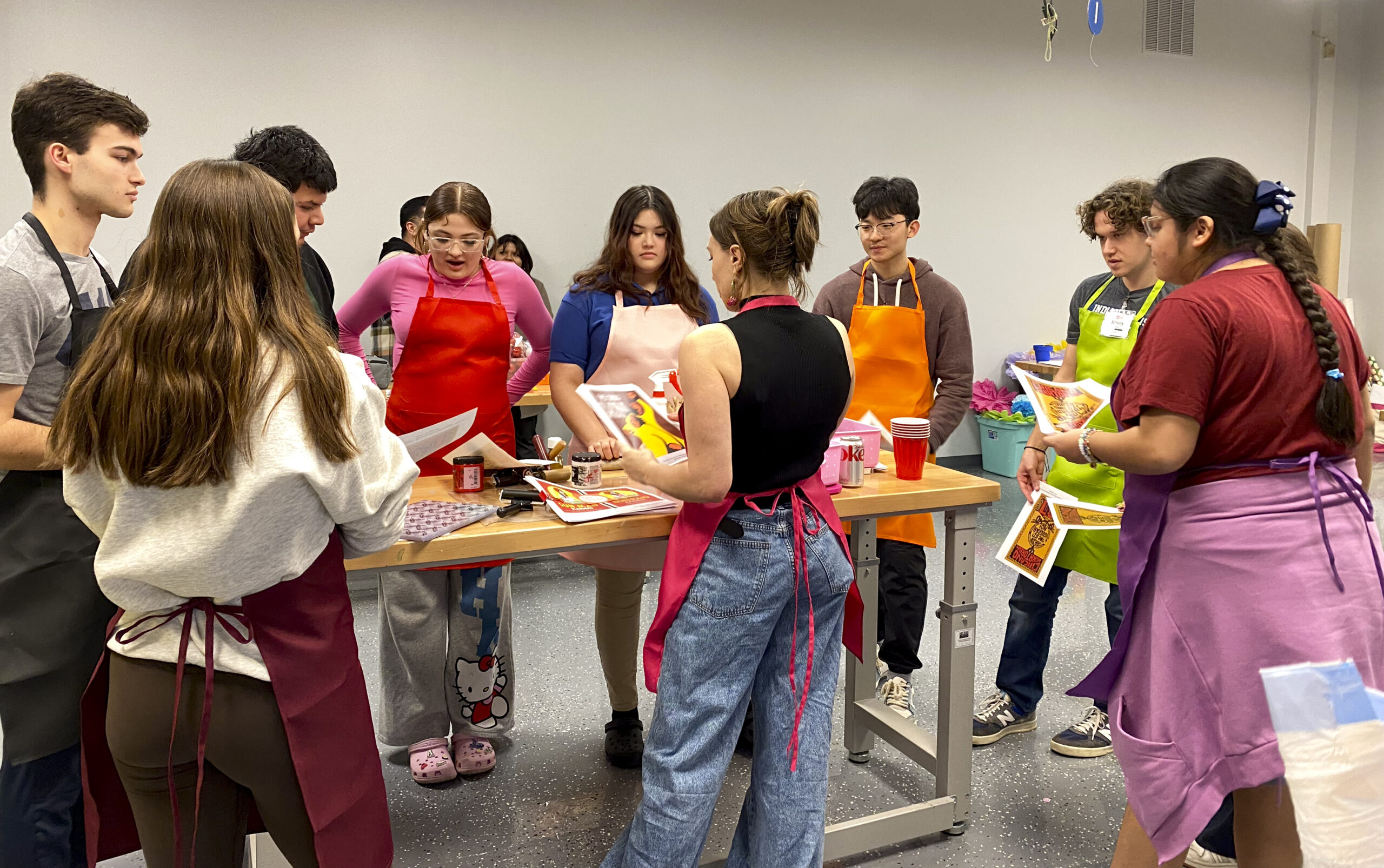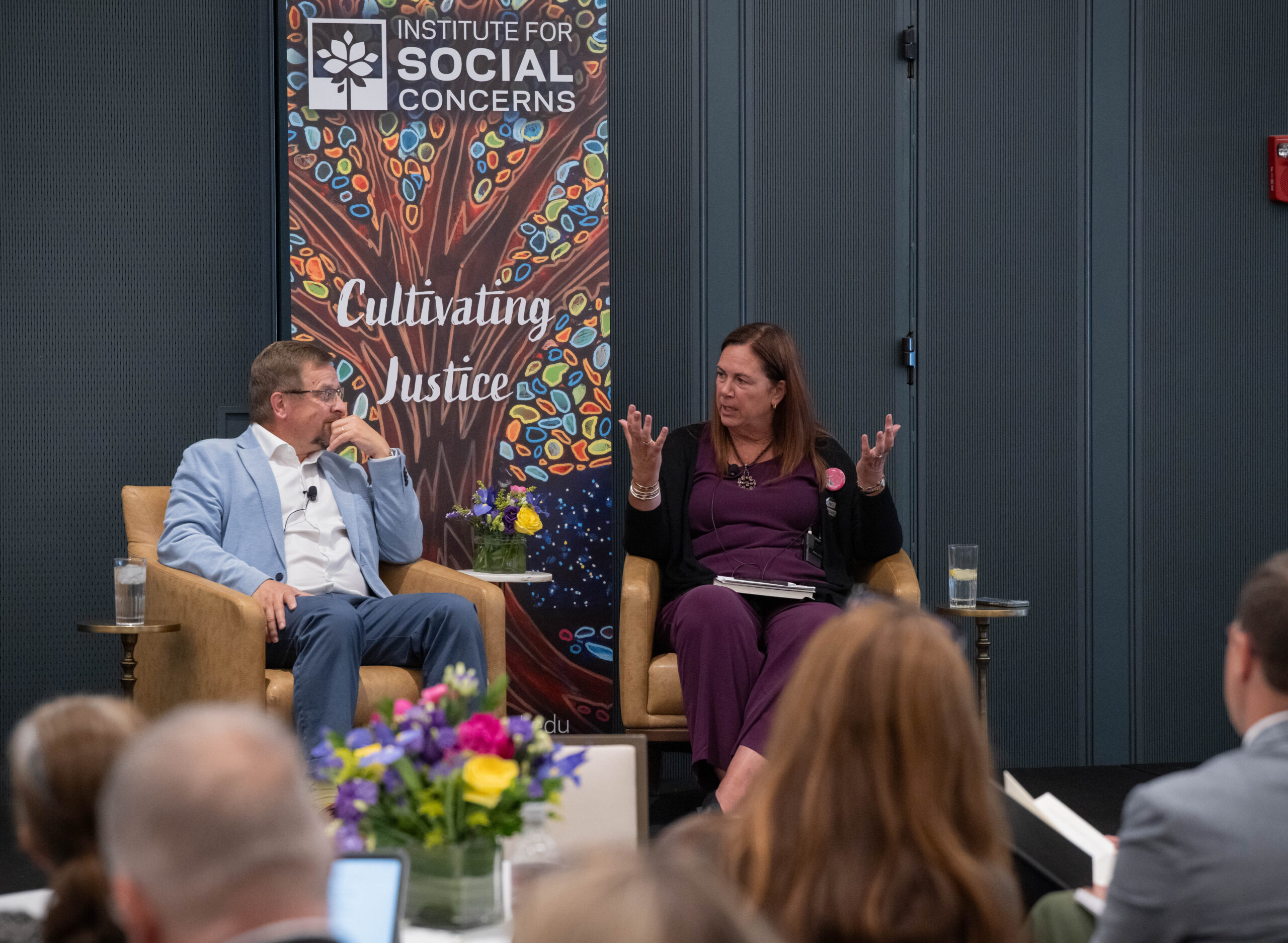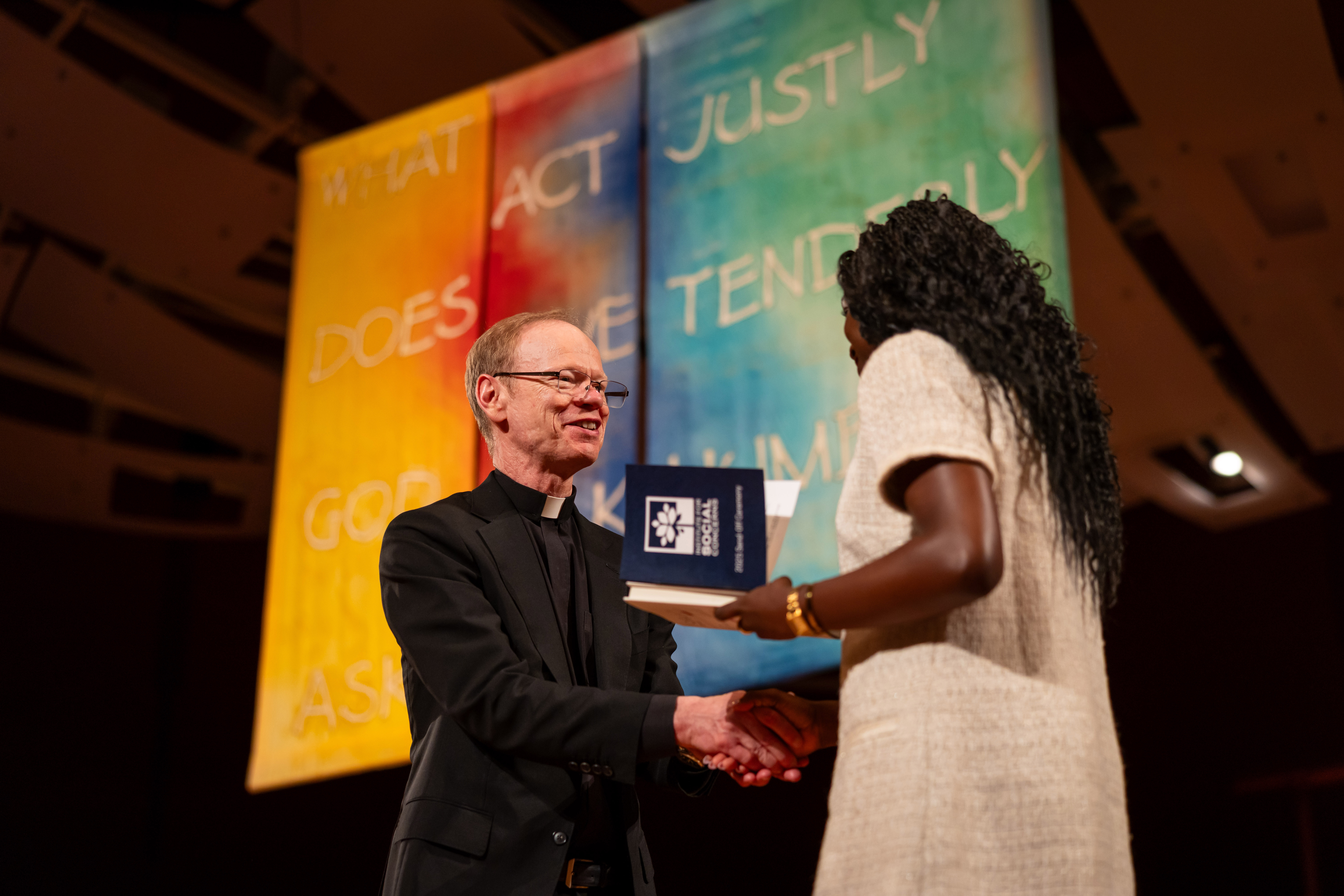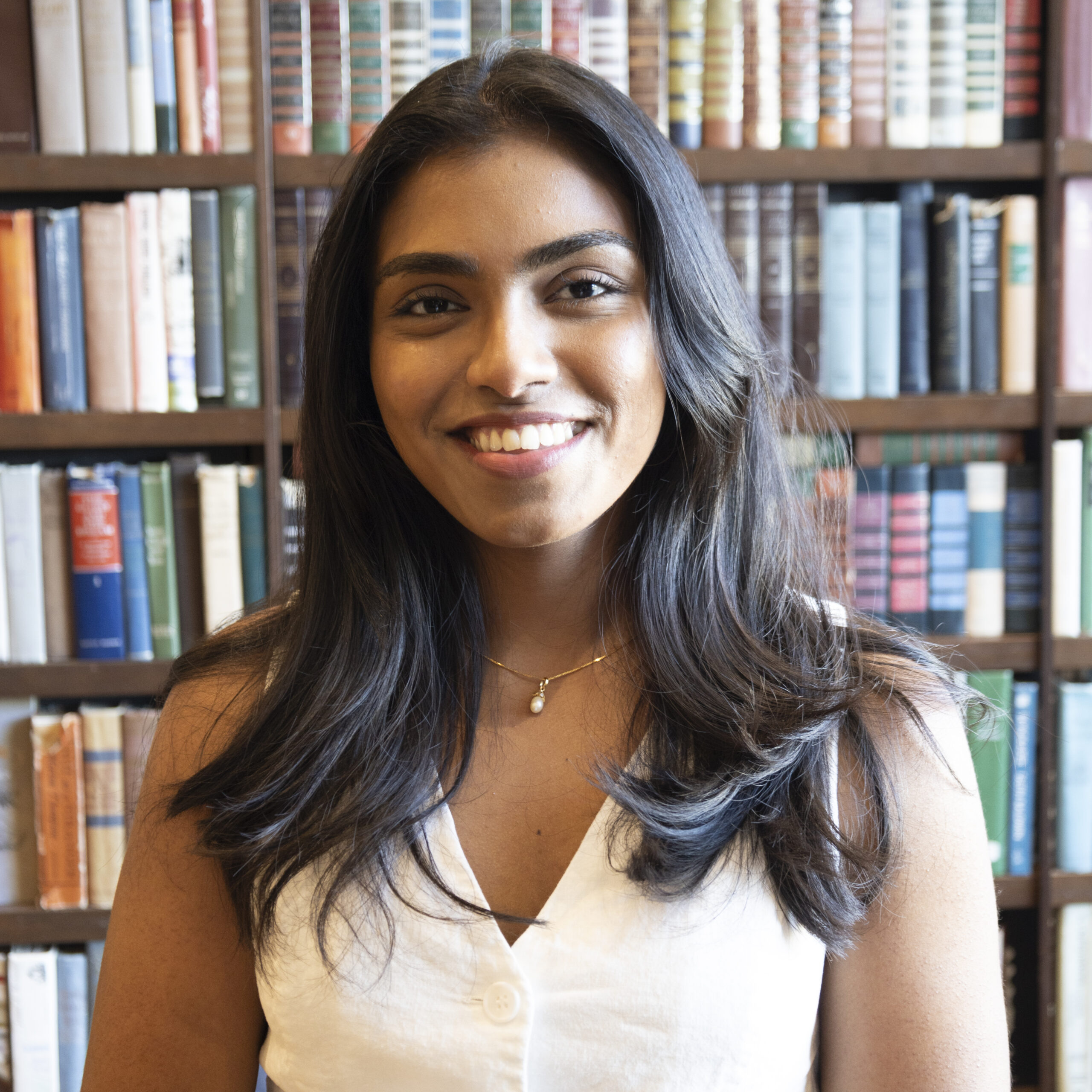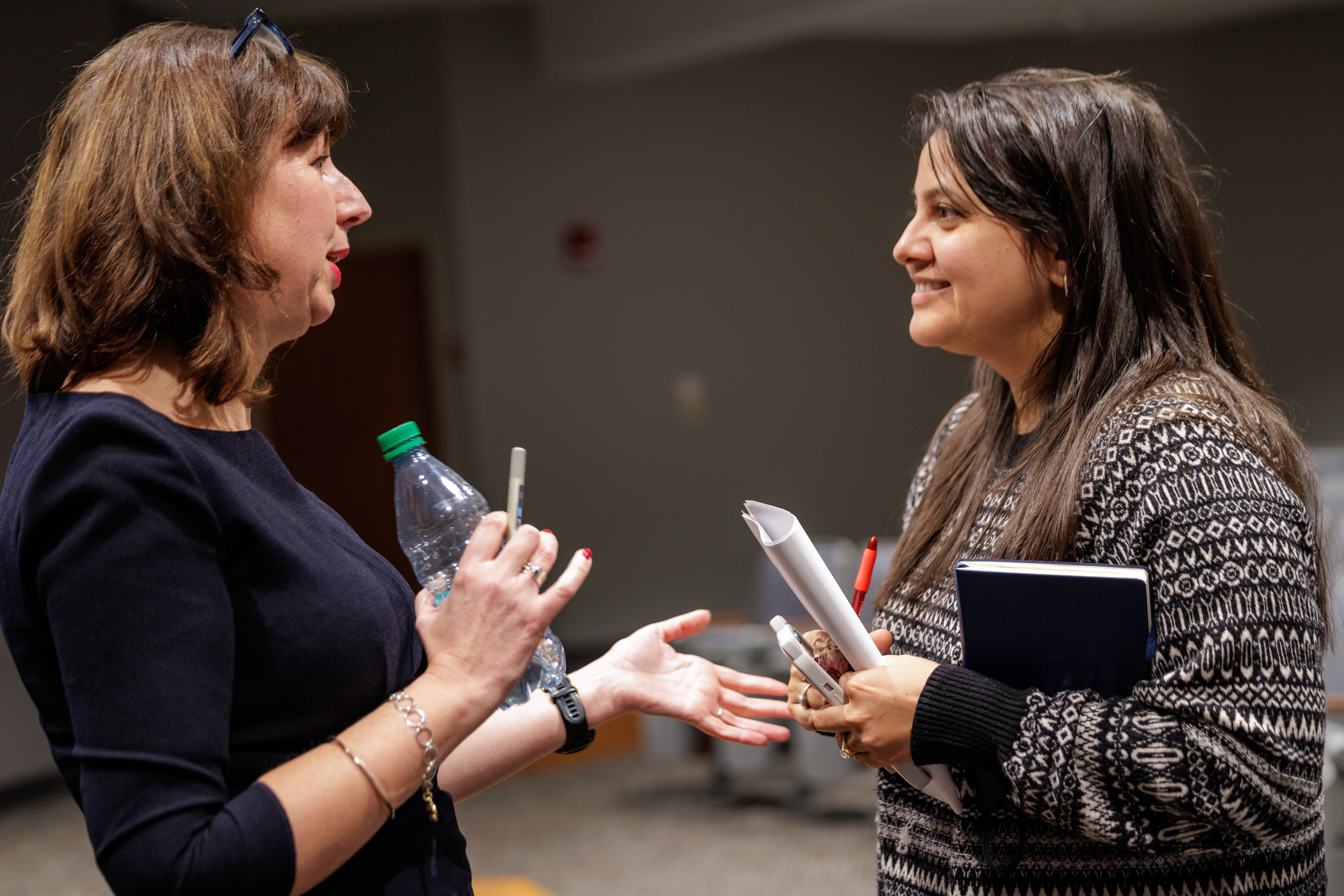Professor Ryan Juskus brings a spiritual dimension to studies of environmental justice
September 27, 2024
When Ryan Juskus was a senior at Wheaton College, he spent six months in the Peruvian jungle in an internship with Paz y Esperanza, an ecumenical peace and justice organization.
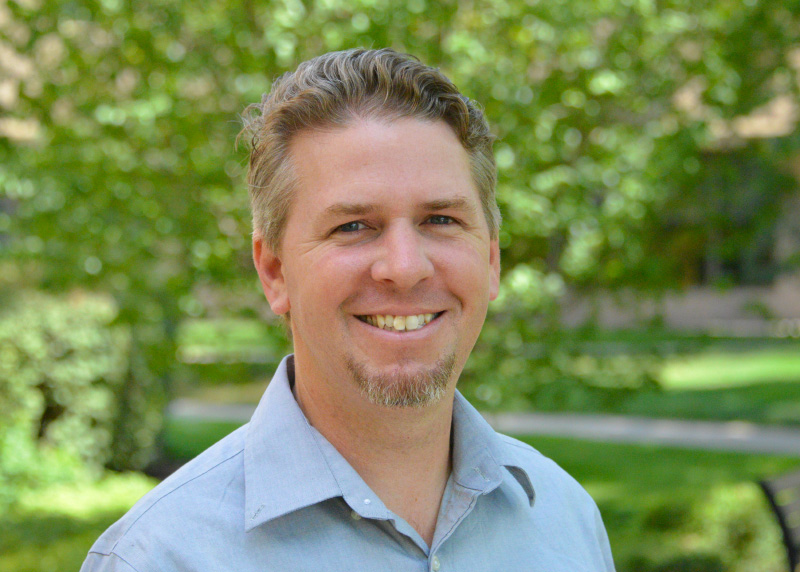
It was 2004, and Peru was in the process of recovering from two decades of infighting and political violence. Paz y Esperanza was working with Peru’s Truth and Reconciliation Commission to advocate for reparations for victims of the conflict. And while Peruvians were trying to understand and address those past injustices, there were new debates around a free trade agreement with the United States and a broader effort to open up the country’s interior to corporations and development.
“What I saw at the time was that the seeds of new conflict were already being sown,” Juskus said. “Those new conflicts were all about access to territory, land, minerals, and resources in the jungle — land that had already been occupied for thousands of years by Indigenous groups.”
The experience launched Juskus into what would become his life’s work. Over the past 20 years, he has studied the social, religious, and moral dimensions of environmental justice from the Amazon to Appalachia.
This summer, he came to Notre Dame to join the Institute for Social Concerns’ faculty as an assistant professor of the practice. In addition to teaching courses related to environmental justice, he’ll serve as faculty director of NDBridge — a one-credit course and immersive summer research program in which rising sophomores live alongside marginalized communities throughout the United States and abroad. He’ll also teach Pursuing Justice and the Common Good, one of the core courses in the McNeill Common Good Fellows program.
“What I love about Notre Dame is that, as a premier Catholic research institution, it provides an opportunity where we can be the best of a modern research university and orient that toward the common good, toward solidarity, and toward justice,” said Juskus, who had prior academic appointments at Duke, Wake Forest, and Princeton.
“I’m particularly excited about the Institute for Social Concerns because it’s interdisciplinary,” he added. “It’s a space where we can bring multiple methods and perspectives and theories to bear on trying to understand and address environmental issues. And we can do so in a way that’s rooted in a tradition that has a very strong teaching about the human person as one who flourishes in relationship with others, with God, and with the wider world of creation.”
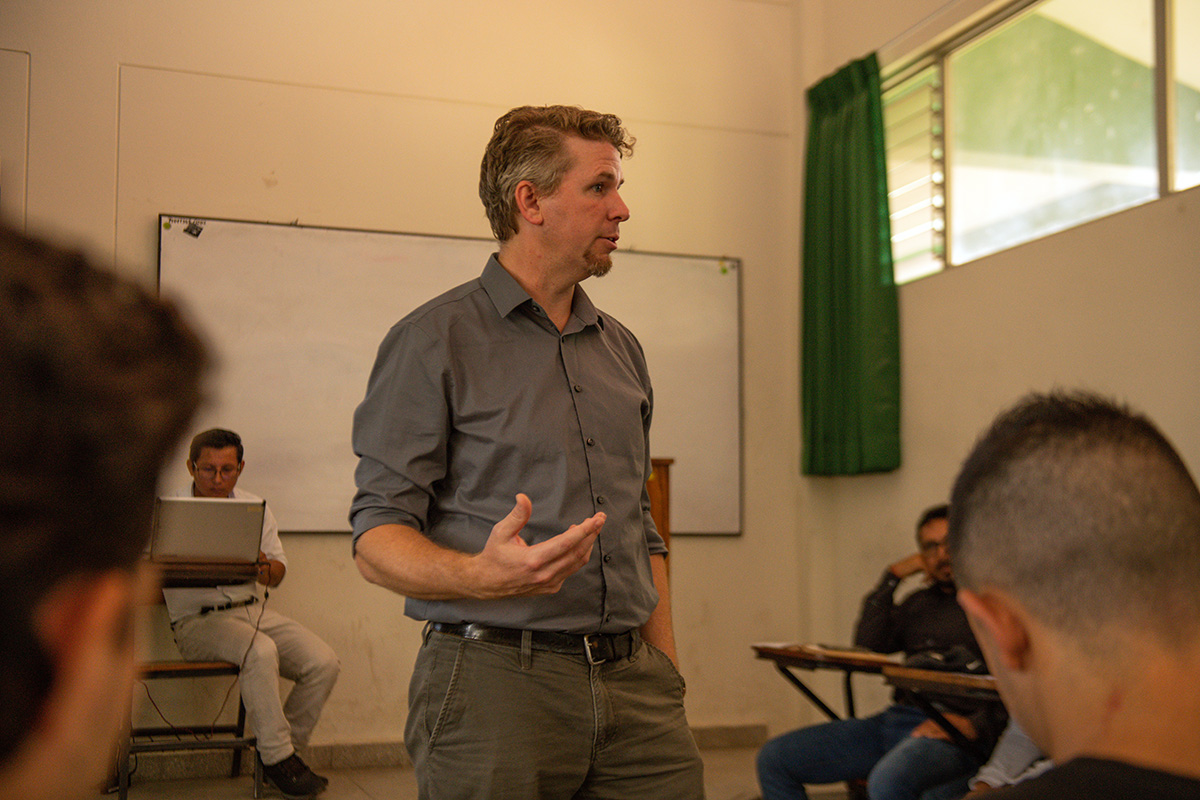
Juskus earned his Ph.D. in religion at Duke. He found a home in interdisciplinary religious studies because he saw that conversations about the environment needed to include other viewpoints alongside economic projections and scientific data. Economic growth matters, of course, but so does the value of human flourishing and living justly and generously with others and the natural world.
His research focuses on the norms and strategies of religious environmental activists and the role of Christian thought and practice in environmental movements.
His writing has been published in academic journals such as Environmental Humanities and the Journal of the Society of Christian Ethics as well as in public forums like The Immanent Frame and ABC Religion & Ethics. His article, “Sacrifice Zones: A Genealogy and Analysis of an Environmental Justice Concept,” was the most-read article in Environmental Humanities in 2023. He collaborated with Wake Forest students to publish Decarbonizing Character: Visions of Decarbonized Human Flourishing (Yellow Leaf Publishing, 2022).
Juskus is currently preparing his first book manuscript, titled Restoring Eden in Sacrifice Zones. The book builds on his ethnographic study of activists who organized citizen science projects in some of the fossil fuel industry’s sacrifice zones in the United States.
A “sacrifice zone” is an area that’s used for resource extraction, transportation, production, use, or waste disposal in ways that concentrate environmental harms nearby while the benefits flow to consumers and investors who are far removed from the region. Areas of the Global South that are under heavy pressure for deforestation and dangerous mining practices are prime examples of sacrifice zones, but parts of North America — including Appalachian coal country, shipping ports like Houston, and petrochemical corridors like “Cancer Alley” in Louisiana — also fit the description.
“There’s always been this divide where those places that get the sustainability and the development and the economic growth are spatially separated from the places that get the sacrifice and the degradation and the injustices and the human rights abuses,” Juskus said. “That spatial separation has come to animate my questions and my thinking in the work that I do.”
Other deeply rooted injustices related to race, class, gender, colonialism, and Indigenous groups intersect with sacrifice zones, adding to their complexity.
So, what can be done? Juskus believes it starts with listening.
“This work is not just about scholars coming up with solutions for the rest of us to adopt,” he said. “Part of the solution is in learning from folks who have a more holistic understanding of what it means for human beings to flourish as individuals, as communities, and as part of the wider ecologies of life, and who have developed meaningful responses to environmental and climate injustices.”
What scholars can bring to the table, he said, is a methodology to listen for, critically examine, harness, and amplify the wisdom of practitioners and social movements in order to enable wise action more broadly.
“The methods we use to understand questions like this are crucially important,” he said. “There is a lot of practical wisdom that practitioners have gained from being deeply engaged with communities and working with communities to address environmental problems, social challenges, those sorts of things. We in the academy need to think with, work with, collaborate with people who have that practical wisdom and let that enlighten us about our own understandings of problems like climate change or energy transition or environmental justice.”
Read about all of the new faculty and scholars who joined the Institute for Social Concerns this fall.
Related Stories
-
Printmaking history—the institute partners with community to celebrate South Bend’s Latino heritage
-
Forming character through friendship—Virtues & Vocations conference promotes human flourishing in professional education
-
Go be justice—Sending off graduates to work for the common good
-
ReSearching for the Common Good: O. Amandhi Mathews
-
Toward a culture of encounter—Lecture series engages Pope Francis, Catholic social tradition

